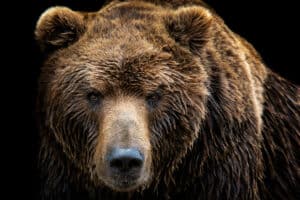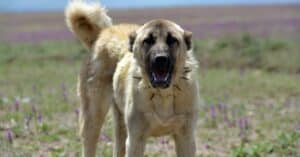With a bite force of 800 PSI and a weight of up to 551 pounds, a black bear is nothing to treat lightly if encountered. Despite being known as less deadly than a grizzly, the black bear has similar strength and speed. So, how fast can a black bear really run?
Black bears have been recorded to run up to 30 to 35 miles per hour. That breaks down to almost 2 minutes per mile, making them very fast. Even the fastest man alive can only run a mile in three minutes and 43.13 seconds. So, they couldn’t even outrun a black bear if they tried.
As you can see, black bears are extremely fast and shouldn’t be underestimated. Below, we’ll teach you how fast a black bear can run and why you should be wary of them on your travels.
How Fast Can Black Bears Run?
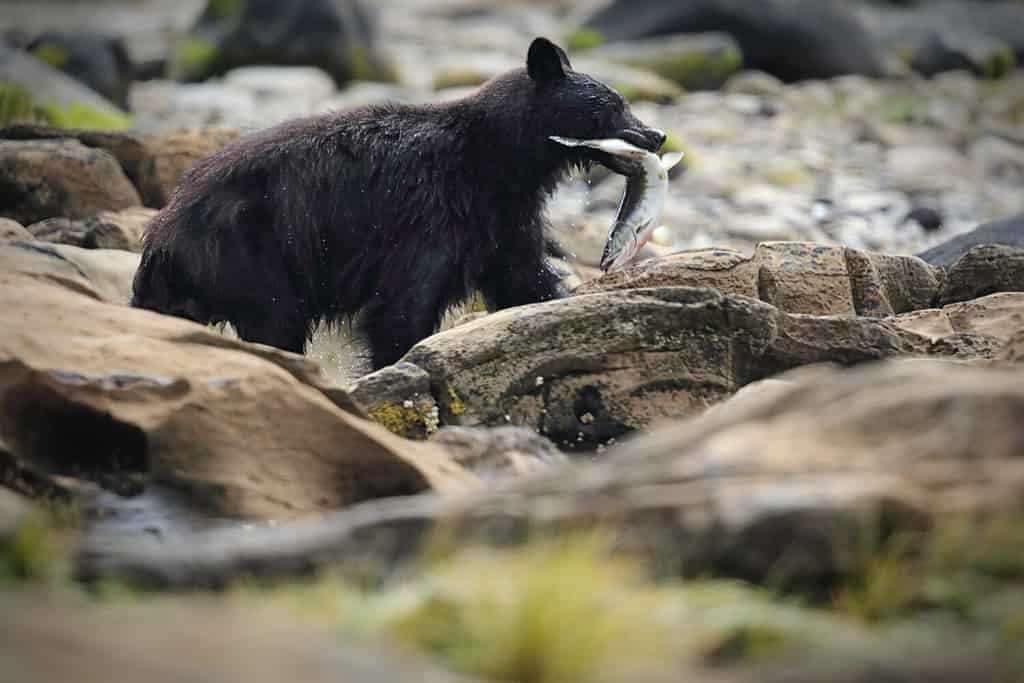
Black bears are speedy runners, moving up to 35 miles per hour.
©Mark Caunt/Shutterstock.com
Even with their stockier build, black bears tend to run just as fast as their brown bear counterparts. The average black bear has been noted to sprint up to 30 to 35 miles per hour. While they don’t have the same endurance as other bears, black bears can still cover a short distance quickly.
Black bears can run faster or slower depending on the time of year. During winter, a black bear will have a winter coat and extra fat reserves, which can slow it down. In summer, black bears will often be significantly faster, as it has just lost its fat reserves from hibernating.
Why Can Black Bears Run So Fast?
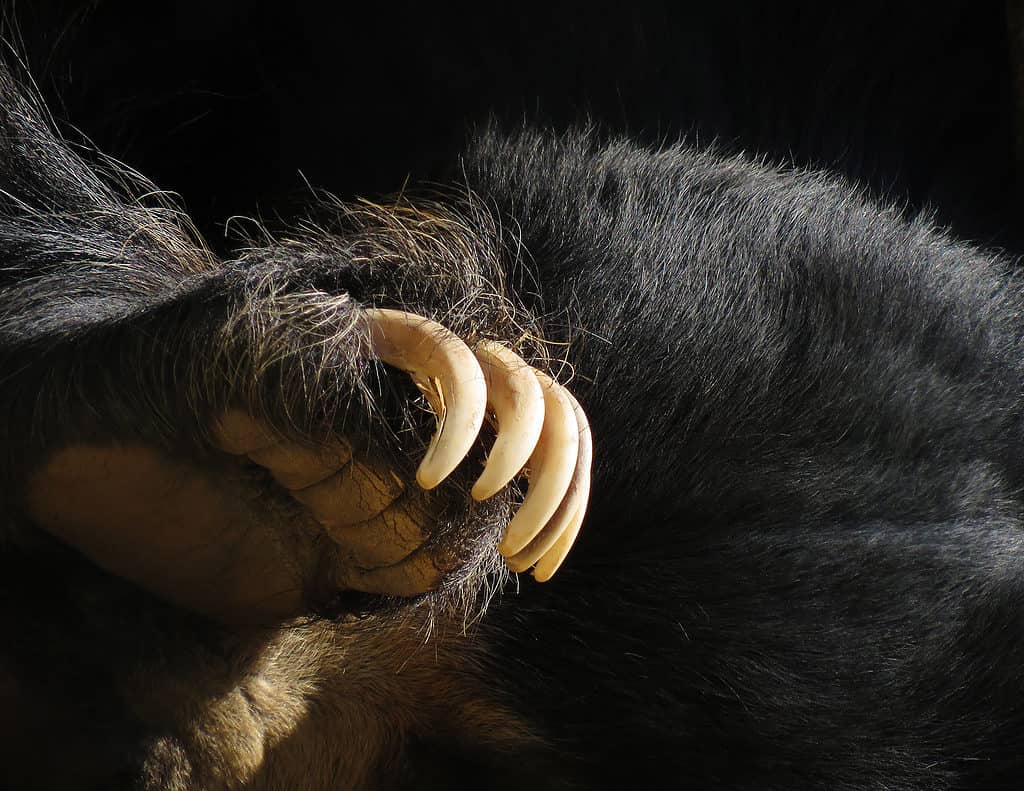
Evolution has changed the bear’s body to make it the perfect apex predator, including certain traits that make it move faster.
©iStock.com/Derikjohn
Evolution plays a significant role in how a species survives, as it helps them develop certain traits. A black bear is an apex predator, meaning it’s on top of the food chain. While most of a black bear’s diet consists of berries, insects, and sedges, they also can end up hunting elk and deer, as 10-40% of their diet consists of meat.
Deers and elk, on average, can run anywhere from 35-40 miles per hour. To catch prey, bears must be able to catch up to them. Hence, evolution has equipped black bears with the ability to sprint quickly for short distances.
Furthermore, bears have evolved to have powerful claws to help dig into terrain and catapult them forward. With the extra traction, they can propel their heavy bodies forward, resulting in quicker movement. Claws and their muscular physique have helped this creature become an apex predator and dangerous.
Can Black Bears Run as Fast as Grizzly Bears?
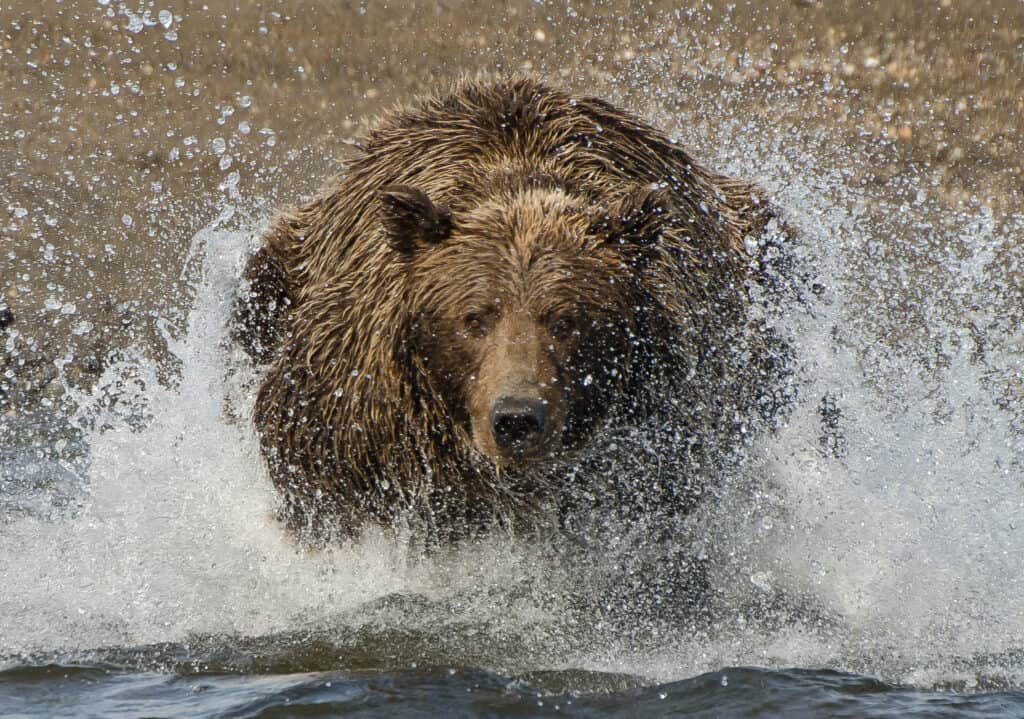
Grizzly bears move faster than black bears, but not by much.
©David Rasmus/Shutterstock.com
Black bears are pretty stalky compared to other bear species, which makes them slightly slower than others. A grizzly bear runs anywhere from 35 to 40 mph while in peak condition. Like the black bear, they only sprint at these speeds for a short duration.
Grizzly bears will run up to 40 mph when chasing prey for up to a few minutes. However, they will start to slow down if it looks like the catch won’t be successful. On the other hand, casual running tends to clock in at around 25 mph. So, a black bear can technically almost run as fast as a grizzly, but only for a short duration.
Black Bear Encounter Guidelines
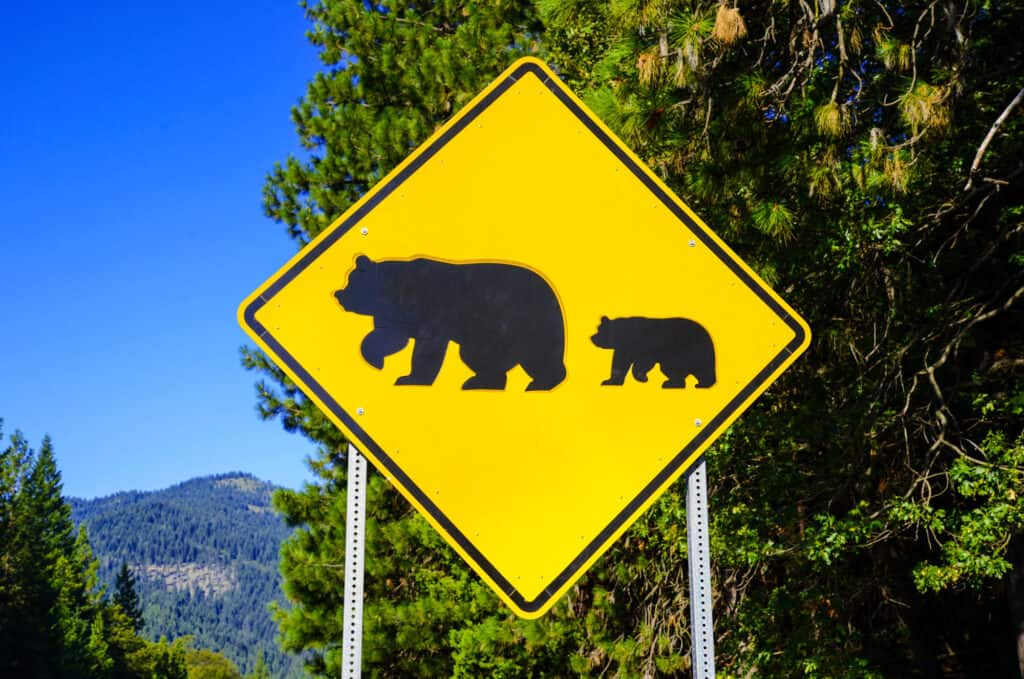
While only one bear attack is fatal each year, the chances of running into a black bear are much higher. Taking precautions, such as carrying bear spray, can help.
©nyker/Shutterstock.com
Out of 750,000 black bears in North America, only one person is killed yearly. So, the likelihood that you’ll be attacked is around 1%. Despite the low risk, if you come face to face with a black bear in the wild or in your backyard, to survive the attack, you should be prepared.
Luckily, black bears often don’t attack unless they feel threatened. The best method of protecting yourself from a black bear attack is not to surprise them. Forest rangers often recommend playing soft music to help alert the bear that you’re entering its territory. That way, they won’t be startled and act rashly out of surprise.
Here is a quick rundown of your options if you run into a black bear:
- Make yourself look big by raising your arms over your head
- Make noise by shouting or talking loudly in a group
- Use tools or gear to bang together to make noise
- Use bear spray to deter them if they approach
- Slowly back away from the bear while facing them
- If attacked, fight back, focusing hits on the snout, face, and muzzle
What you shouldn’t do when you encounter a black bear:
- DO NOT run away from the bear
- DO NOT approach them further
- DO NOT feed them any food
- DO NOT play dead
- DO NOT climb a tree
The photo featured at the top of this post is © BGSmith/Shutterstock.com
Thank you for reading! Have some feedback for us? Contact the AZ Animals editorial team.




